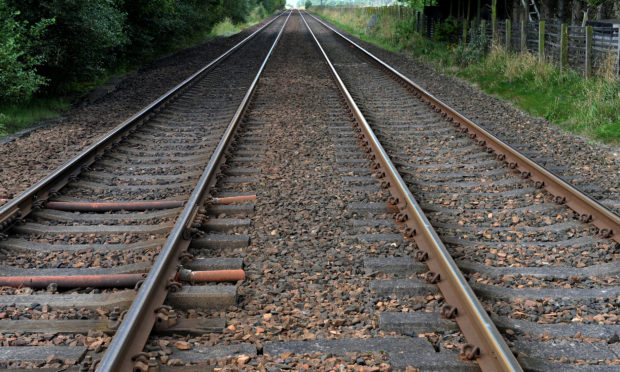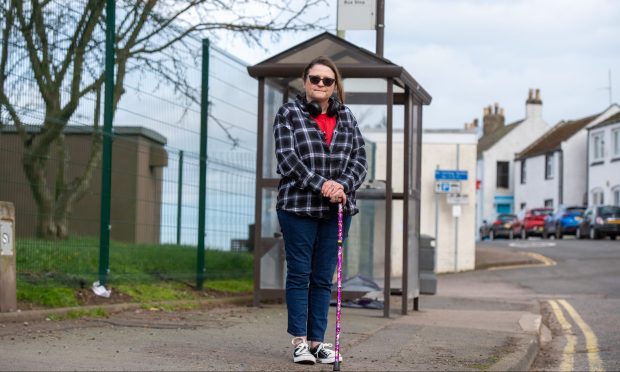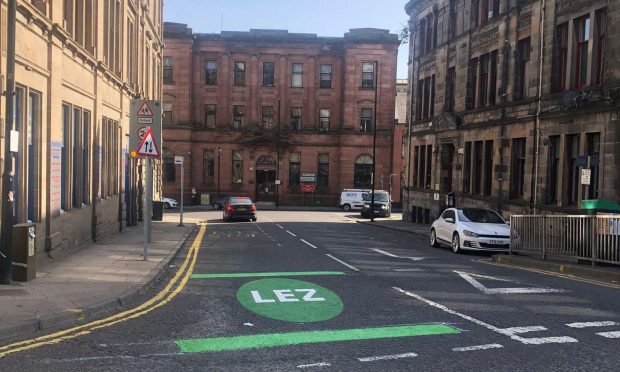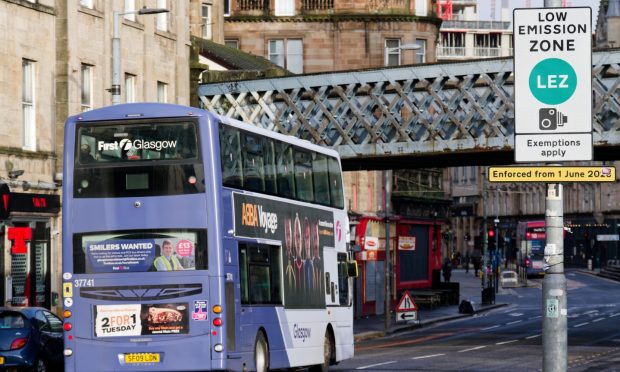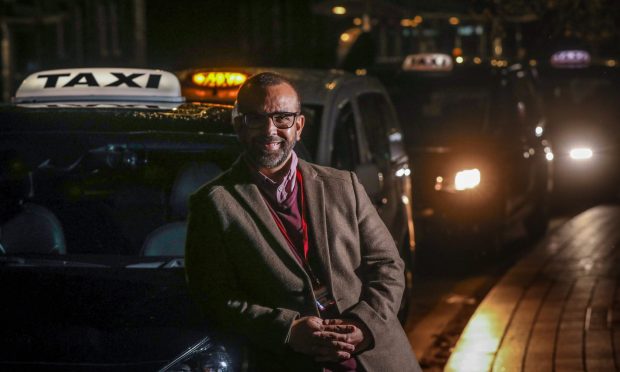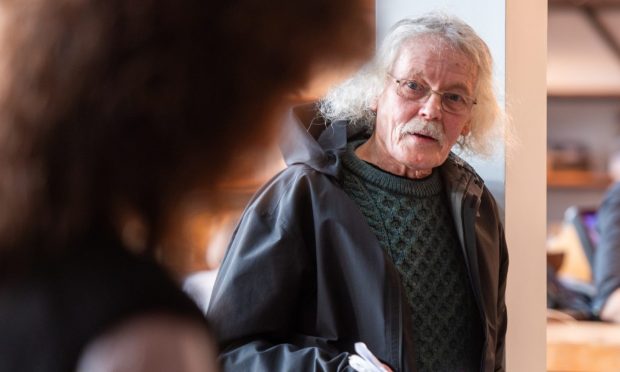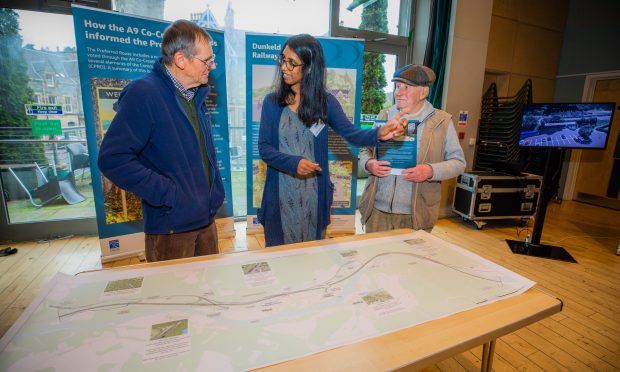Sir, – Since the Scottish Finance Secretary Derek Mackay intends that the budget this week will aim to “unlock economic potential” in the country, the good people of Levenmouth are expecting a concrete commitment to reinstate our mothballed rail link.
The Scottish Government’s vision is for a “future-proofed, forward thinking Scottish economy”.
However, as long as major settlements such as Levenmouth remain unconnected to the national network, it is hard to see how inclusive growth can be attained.
The lack of a rail service handicaps the whole community and the access to employment, study and leisure other communities take for granted.
It also means that local industry, including Diageo, Donaldson and Fife Energy Park must compete on an unequal playing field. Reopening the existing line for services will require an estimated £40-£50 million, a truly insignificant investment in the big picture. Does he have the vision to grasp this opportunity?
Stuart McIntosh.
Kirkland Walk,
Methil.
When a deal is not a deal
Sir, – After Theresa May returned from Brussels clutching her bit of paper claiming a deal had been done towards Brexit progress and the issue of the Irish border, it was regarded as a great victory by the right wing press.
However yesterday we read that David Davies says the deal on the Irish border is not legally binding, thus infuriating our nearest neighbour (The Courier, December 11).
It would appear the British Government are taking going back on your word to a new level –or they are just totally incompetent? I will let others choose which.
Bryan Auchterlonie.
Bluebell Cottage,
Ardargie.
A case for shorter degrees
Sir, – Shirley-Anne Somerville, Scotland’s Minister for Further Education, Higher Education and Science, really should take a look at her English opposite number Jo Johnson’s proposals for shorter university degrees.
Under Mr Johnson’s proposal, English universities would cut their long summer vacations, so allowing them to provide as many week’s teaching in two years as they currently provide over three.
This idea is not untested, as the University of Buckingham, Britain’s oldest private university, has been successfully using this model for over 40 years.
In Scotland, where many first degrees are at the moment four years, moving to round-the-year teaching would cut these courses to three years. Shorter degrees would provide financial savings both to the students and to the public purse.
Of course, universities would have to adjust their business model, as they would not be able to rent out student rooms during the long summer vacation.
Shorter degrees would also improve access.
Courses would be more attractive to mature students, who find taking three years out of full-time employment a daunting disincentive.
Shorter courses might also improve working class participation.
If we are to make the best of devolution, we must realise that Scotland won’t always lead, as we did with the Smoking Ban, but sometimes should follow innovations in other parts of the UK.
Otto Inglis.
6 Inveralmond Grove,
Edinburgh.
Why is this fraud not reported?
Sir, – A report in a UK national newspaper on Saturday, December 9, revealed a large scale benefits fraud network among Romanians in Govanhill.
The fraud was conducted involving several bogus companies and some solicitors, none of whom involved British citizens.
Officials were quoted as saying: “HMRC identified child tax credit and other benefit claims involving 58 people in Govanhill. The total sum was around £1 million and the scale of benefit abuse was quite staggering.”
Sixty people have been issued with notices advising them they were likely to be deported, and of those, 36 have already been forced to leave the country.
Fourteen people have been denied entry to the UK at airports and other locations in connection with the fraud.
What I find astonishing is that the Scottish press and BBC Reporting Scotland appear to consider this is not newsworthy, as I have been unable to find reports in the Scottish media.
Perhaps this might have something to do with possible embarrassment being caused to the Holyrood member for Govanhill?
Donald Lewis.
Pine Cottage,
Beech Hill,
East Lothian.
Income tax in Scotland
Sir, – Sheena Urquhart (Letters, December 9) says that the threshold for higher rate income tax is £45,000 in England but £31,500 in Scotland. The figures are correct but she is comparing apples with oranges.
The English figure quoted is before the personal allowance of £11,500 is subtracted.
The Scottish figure is for taxable earnings after deduction of the allowance.
The correct comparison is therefore £45,000 in England versus £43,000 in Scotland.
James Christie.
2 Dryburgh Crescent,
Perth.
Expenses are not free money
Sir, – As a person who has worked for MSPs and an MP dealing with their expenses, I really must puncture Tom Fowler’s post-truth bubble (Letters, December 6) in regard to politicians’ expenses and what they can spend them on.
Politicians have a salary, which they are paid in full for doing that job. Expenses are an entirely different matter, a finite budget amount, which each politician can access from their parliament for expenditure that enables them to do their job efficiently. Ask yourself if you expect your local MSP or MP to have an office, staff, a telephone, and an email address? If the answer to any of these questions is “yes”, then your politician will need expenses.
Staff costs are the main expense and are paid directly by the parliament. An office to work in involves rent, electricity, gas, telephones, computers etc and politicians rightly claim expenses to pay for these things. They submit forms for these expenses to their respective parliaments and produce the bills and receipts as evidence.
The system is very tightly policed by the parliamentary expenses department and they do not hesitate to query anything they feel has not been properly explained.
Mr Fowler’s notion that a politician can simply walk into a supermarket and buy a couple of bottles of booze and claim it from “expenses” that they can simply trouser without explanation is ridiculous.
Politicians get a bad press and on some occasions this might be well deserved, but the idea that expenses are “free money” to be spent by them willy nilly is just plain wrong.
Anya Lawrence.
74B Gray Street,
Broughty Ferry,
Dundee.
Who is running the country?
Sir, – Who is really running this country?
The banks, one of the worst ones RBS, caused total mayhem for which the honest upright citizens have had to pay with nine years of cruel austerity.
They have been bailed out several times by public money, all to our cost. Bank directors still collect wonderful bonuses for doing what?
Running a business at colossal losses where any other company would have been forced to close the doors? Now this publicly owned mess is closing branches willy nilly, leaving their customers high and dry.
I ask once more, who is running the country?
It seems the faceless people who got us into this predicament can do as they please.
Bill Duthie.
25 St Fillans Rd,
Dundee.
